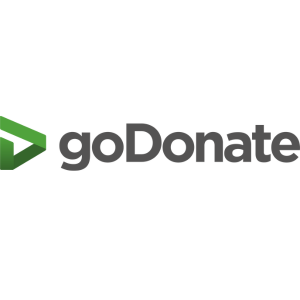Insights
INSIGHTS
All Topics
My Account
How to set up an awareness day
21 Feb 2025by Laura Stanley
We explore how charities can create awareness days to broaden the reach of their campaigns, boost fundraising, and attract support for their cause
Awareness days are a crucial element of any charity calendar. Awareness days related to a charity’s cause can create a tidal wave of online posts about an issue, with everyone posting at a common time, bringing people affected by it together and making it more visible to others.
At their simplest, awareness days give charities the platform to communicate more about their mission and their purpose. They offer the opportunity to put issues into historical context, demonstrate progress that has been made towards solving challenges, and lay out what still needs to be done. They can become an instrumental part of a charity’s storytelling, a set day where the proverbial microphone is handed to them and the world listens.
There are hundreds of awareness days in the UK and worldwide, from celebrating the achievements of marginalised communities to raising awareness of different medical conditions. Charities can find a helpful list of existing awareness days here – there may already be a day that relates to their mission, allowing organisations to collaborate and spread awareness together.
But what about creating a new one? The benefits of awareness days are clear. If fundraising is all about engaging supporters at times where they are already interested in your mission, awareness days can drive that interest, subsequently boosting donations and garnering support. Charities can build campaigns around their awareness day, prepare for how it will be commemorated, and plan for an entire 24 hours where their cause is the hot topic. It is also a chance to centre service users, help them to share their own experiences with others, to generate support for a cause close to their heart.
In the UK, there is no official way to create an awareness day or have it recognised. While this can make the process of setting one up feel daunting, it actually gives charities the freedom to develop their own campaign over time. It means that any charity, of any size and revenue, can set up an awareness day, not just the big hitters.
In this article, we explore how charities can create an awareness day, and how they can build momentum and encourage participation among supporters in 2025 and beyond.
How can I create an awareness day?
Check the awareness day calendar
There are many awareness day calendars for charities – and many awareness days that may relate to your cause. In order to cut through, charities should choose a day where their messaging will be able to stand out without competition from other, more established days.
Check your date for potential clashes, particularly when you may be fighting for the same audience. While National Bloody Mary Day might not be a rival for your supporters’ attention, for example, Endangered Species Day might be.
Understand what is important to your supporters and avoid competing for their attention on a day where they are already preoccupied.
Find the right awareness day date
It’s not just avoiding clashes that is important when picking a date for your awareness day. You should also choose a date that is meaningful to your cause or relevant to your purpose.
For example, when World AIDS Day was first established in 1988, the aim was to raise awareness of the disease, mourn those who had passed away from it, and support those living with HIV and AIDS, at a time when it was widely misunderstood and heavily stigmatised. The date chosen for the awareness day was – and still is – 01 December because it was expected to drive more news coverage, occurring sufficiently after the buzz of the US election and before the distraction of Christmas.
“World AIDS Day exists to shine a light on the real experiences of people living with HIV today, while celebrating the strength, resilience and diversity of the communities most affected,” explains the World AIDS Day website and the aim of the day chosen was to shine that light as brightly as possible, according to the then news cycle.
Similarly, World Braille Day is celebrated annually on 04 January, the birthday of its inventor Louis Braille.
The date chosen for an awareness day can be as communicative as the day itself. It should be discussed carefully, factoring in the purpose of the day, what you hope to achieve, other demands on people’s time around the day, and any days of historical relevance to your charity.
Create and share materials about your awareness day
An effective awareness day knows what it wants to achieve. It should have a clear call-to-action, encouraging people to share the cause with their own networks and advocate support among a wider audience, helping awareness days to live up to their name.
To broaden their reach, charities should assist their supporters with shareable material. It could be a badge for their social media profile, posters, blog posts, videos – any of which can communicate the importance of a charity and its work efficiently. The more people posting content on the awareness day can increase the reach of the campaign and make it impossible to miss. So simply make it easy to share.
A physical example of shareable materials are the ribbons worn for World AIDS Day and other causes. These ribbons are a way to help people show their support for a cause boldly, while funds raised from selling ribbons contribute to the charity work itself. Charities should look to emulate this model digitally, sharing a simple, effective, and consistent message with simple, effective, and consistent content.
Remember: charities are fundraising experts. Make it easy for supporters to be vocal about your cause – give them messaging tips, shareable information, videos, and other communication tools to help increase engagement and persuade others to join them in support.
Encourage active participation in your awareness day
Awareness days can also include an interactive or participatory element beyond simply raising awareness. It could be asking people to upload a picture, perform a challenge, or share their story. Save The Children’s Christmas Jumper Day (unsurprisingly) asks people to wear a Christmas Jumper and donate money, for example. Christmas Jumper Day is more of a fundraising day than an awareness day, per se, but the overlap is significant. Christmas Jumper Day is recognised as a fundraising day specifically for and run by Save The Children – it helps amplify their brand and bring together supporters at the same time.
Charities should also consider partnering with other organisations in the same field. When developing the campaign, let people know it is coming. Give people time and resources to create their own posts and campaigns in keeping with your awareness day to expand its reach. Collaborating with others adds authority and authenticity to your awareness day so it’s not just your voice shouting about it, it’s a chorus instead.
Do not give up on your awareness day
A new awareness day may take some time to enter the zeitgeist. News cycles move rapidly and the online world is a busy place, meaning it is difficult for some messages to cut through the noise. While established awareness days already have the support of thousands, smaller charities and new awareness days will need to build that support – and it can take years.
Consider your awareness day to be a foundational block in a larger campaign. Each subsequent awareness day will build on lessons from the previous one. For example, you might discover which social media platform experiences the most engagement and choose to focus on content that performs well there the next year. If you find posts online about your day that are spread out, using lots of different hashtags, you may need clearer messaging or find a way consolidate that content into one place. If a particular element of your campaign sticks out, you may decide to focus on that the next year or give each year a new theme.
Whatever the lesson is, make sure you take it on board when planning for the next awareness day. Set clear goals, measure your progress, and adapt as necessary. It takes more than one day to raise awareness from nothing – but one day, repeated over years, can certainly build it over time.
Submit your awareness day
There are lots of calendars listing awareness days all over the world. Be brave and submit your charity awareness day to these calendars, asking to be included on the list.
Do your research and consider what criteria these calendar-creating organisations are looking for. Build a dossier of evidence and ensure your day looks legitimate, with visible posts from your charity promoting it.
Some places you can submit your awareness day to include AwarenessDays.com (though this requires a fee) or YearAhead, a UK-based events database which works with national PR organisations. Ricky Clarke, Head of Influencer Research at Influencer Intelligence, the organisation behind YearAhead, advises emailing the organisation to list your event for free. Those creating an international awareness day might consider submitting it to NationalDayCalendar.com, a US-based organisation which helpfully provides a lot of information around its submission process. You can also request to include it on Charity Digital’s list of key awareness dates to share it with others in the charity sector.
However, the best way to make your new awareness day a staple of the charity calendar is still to build up momentum over time. Reinforcement is key for recognition – this is your day to tell your story. Be visible, vocal, and purposeful. Make it your day with confidence and bring your supporters along for the ride.
More on this topic
Recommended Products
Recommended Products
Our Events
Charity Digital Academy
Our courses aim, in just three hours, to enhance soft skills and hard skills, boost your knowledge of finance and artificial intelligence, and supercharge your digital capabilities. Check out some of the incredible options by clicking here.





















